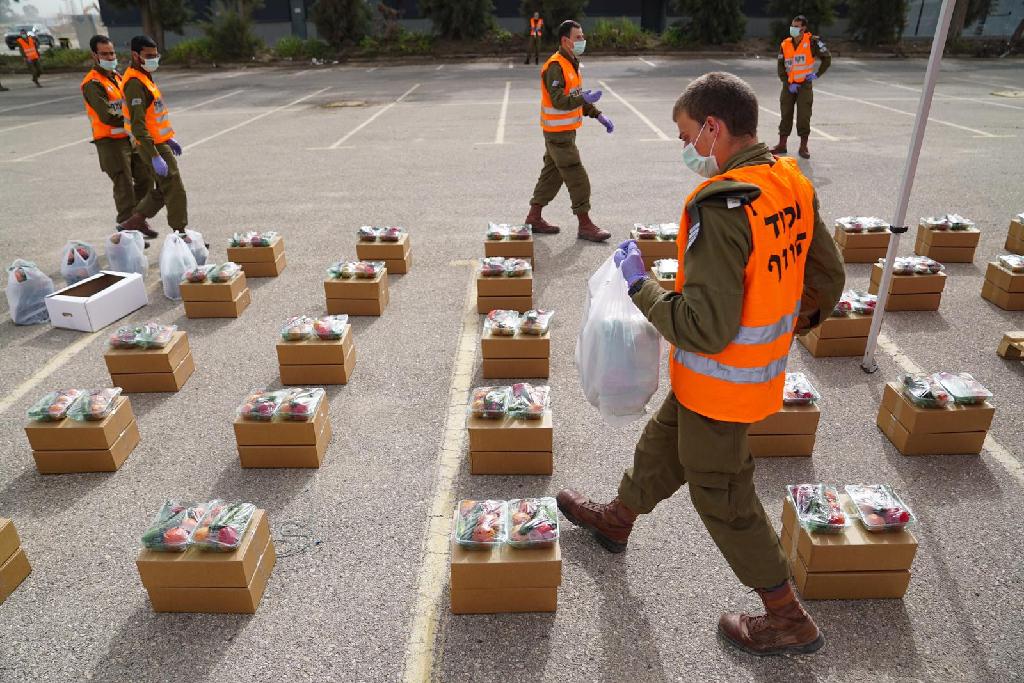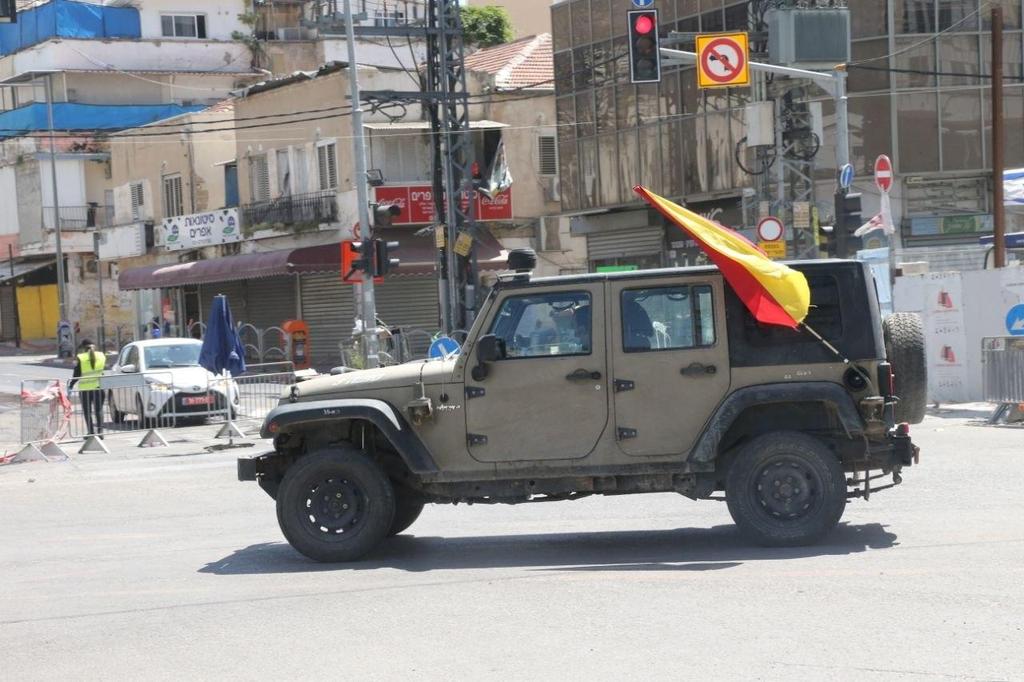Since the onset of the coronavirus crisis, the former Defense Minister Naftali Bennett and the current Defense Minister Benny Gantz, both suggested to greatly expand the IDF's responsibility in dealing with the epidemic. Now, another former defense minister, Avigdor Liberman, has joined them in this call.
So far, Prime Minister Benjamin Netanyahu has restricted the scope of the IDF's involvement in the management of the crisis, while imposing sensitive missions on two other security bodies: Mossad - to procure medical equipment and clandestine contacts with other countries - and Shin Bet to monitor confirmed virus carriers as part of the effort to break the chain of infection.
3 View gallery


IDF soldier handing food rations during coronavirus lockdown
(Photo: IDF Spokesperson's Unit)
The debate around the IDF's involvement in the crisis reeks of political interests. The defense ministers, who are excluded from handling the main duties in the battle against coronavirus, are also trying to get in on the action by using their military's skills and prestige. The prime minister, on the other hand, is trying to block these attempts out of the same considerations.
Still, two questions remain open: should the IDF be more involved in managing the virus crisis, and are there any lines it should not cross?
The coronavirus epidemic has created national health, economic, and social crises, which require the engagement of all citizens - both as individuals and as a society - and state institutions, in order to solve it.
The IDF does, indeed, have many capabilities in managing a crisis such as this one -
logistics, data extraction, and ability to assist to authorities and civilians in need. The Home Front Command especially excelled in this sense.
However, the call to delegate all responsibilities in managing the outbreak to the army is problematic for several reasons.
First, it is not the army's place to oversee civil crises that could potentially become highly volatile.
Second, assuming responsibility for the campaign against the virus for an extended period of time, will take up a great deal of the military's focus and resources. The IDF must focus on its security missions, such as curbing Palestinian violence in case the annexation of West Bank settlements does turn into reality.
Moreover, undertaking the management of the crisis requires a set of certain civil skills in fields such as public health and economics, which are not the IDF's domain.
Furthermore, the management of the crisis could require making difficult decisions that might have far-reaching ramifications on the public as a whole regarding the relations between the army and society. An example of this would be imposing a long and extensive closure that could lead to protests and civil unrest.
3 View gallery


IDF soldier handing food rations in Bnei Brak during coronavirus lockdown
(Photo: IDF Spokesperson's Unit)
Additionally, putting a civilian body in charge of the management of the crisis, which will ensure an organized decision-making process and the implementation of these ideas, would be much more efficient.
And lastly, the very basic definition of a democratic state rules out the option of letting the army lead and make decisions in times of crises, even if it still answers to the political echelon. Such a move will inevitably result in the politicization of the military, and who knows how that will end?
The army should assist in handling the crisis but must not be given full responsibility over its management. The IDF has to assist civilian systems, as necessary, according to government decisions and under the close supervision of the Knesset. Any delineation from this course of action would be a grave and destructive mistake.
I hereby call on politicians to not involve the IDF in their disputes. Leave the army be the army of the people.


